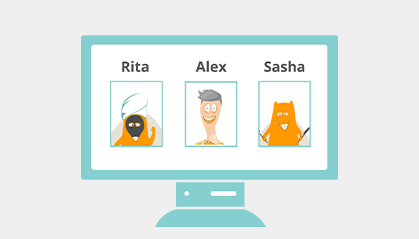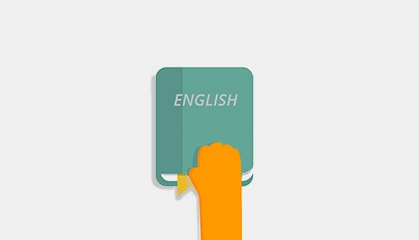Чим би ми не займалися, ким би ми не працювали, усі стають рівними перед загрозою коронавірусу. Міжнародні видання, телебачення та інтернет атакують нас новинами з усього світу про нові регіони, уражені вірусом, кількість людей, що заразилися, і про методи захисту. Щоб розуміти першоджерела та офіційні сайти, такі як WHO (ВОЗ), давайте розглянемо основну лексику та граматику з цієї тематики.
Що таке коронавірус і які типові симптоми?
Ось одне з стандартних визначень нового вірусу:
Coronavirus is a respiratory disease which seems to start with a fever, followed by a dry cough. After a week, it leads to shortness of breath and some patients require hospital treatment.
- a respiratory disease – респіраторне захворювання
- a fever – жар
- a dry cough – сухий кашель
- it leads – призводить до, викликає
- to shortness of breath – задишка
- hospital treatment – стаціонарне лікування, лікування в лікарні
Офіційний сайт Всесвітньої організації охорони здоров'я (WHO) дає такий опис типових симптомів:
Common signs of infection include respiratory symptoms, fever, cough, shortness of breath and breathing difficulties. In more severe cases, infection can cause pneumonia, severe acute respiratory syndrome, kidney failure and even death.
- respiratory symptoms – респіраторні симптоми
- breathing difficulties – утруднене дихання
- kidney failure – ниркова недостатність
- pneumonia – пневмонія
Нижче наведено список найважливіших дієслів, які точно зустрінуться в будь-якій статті про коронавірус:
- to cause – викликати
- to cough – кашляти
- to cover – покривати, закривати
- to detect – виявити
- to infect – заражати
- to maintain a distance – підтримувати дистанцію
- to prevent – запобігти
- to protect – захищати
- to sneeze – чхати
- to spread – поширюватися
І ось кілька прикладів із цими словами з англомовних ресурсів:
- Worldwide, the virus that was first detected in China late last year has spread to more than 90 countries and infected over 100,000 people, causing more than 3,500 deaths, according to the World Health Organization.
- The most effective ways to protect yourself and others against COVID-19 are to frequently clean your hands, cover your cough with the bend of elbow or tissue, and maintain a distance of at least 1 meter (3 feet) from people who are coughing or sneezing.
- A respiratory virus that originated in China has infected more than 100,000 people and has begun to spread in the U.S.
Зверніть увагу на вимову і наголос в деяких словах, адже в англійській орфографія і те, як слово читається, дуже часто не піддається ані правилам, ані логіці.
- respiratory /rɪspɪrətəri/ – респіраторний
- cough /kɒf/ – кашель, кашляти
- breath /breθ/ – дихання
- breathe /bri: ð/ – дихати
- pneumonia /njuːməʊniə/ – пневмонія
- outbreak /'autbreɪk/ – спалах
- quarantine /'kwɔrənti: n/ – карантин
- self-isolation /ˌselfaɪsəleɪʃən/ – самоізоляція
Зверніть увагу, що в англійській мові пасивний стан – Passive Voice – набагато популярніший, ніж в українській і російській. Практично в кожному другому реченні можна знайти приклад, якщо говорити про офіційну, а не розмовну мову.
- If you have come into contact with somebody who may be infected, you may be told to self-isolate.
- From the evidence so far, the COVID-19 virus can be transmitted in ALL AREAS.
- The new coronavirus (2019-nCoV) is a virus and, therefore, antibiotics should not be used as a means of prevention or treatment.However, if you are hospitalized for the 2019-nCoV, you may receive antibiotics because bacterial co-infection is possible.
- Some specific treatments are under investigation, and will be tested through clinical trials.
- This is because it takes between 2 and 10 days before people who are infected become sick and develop a fever.
- WHO has issued advice for these two groups and for community support to ensure that they are protected from COVID-19 without being isolated.
- may be infected – може бути інфікований
- may be told – (вас) можуть попросити, (вам) можуть сказати
- can be transmitted – (вас) госпіталізували
- should not be used – не повинні використовуватися
- are hospitalized for – (ви) госпіталізовані
- will be tested – буде тестуватися
- are infected – бути інфікованим
- are protected – (вони) захищені
- without being isolated – не будучи ізольованими
Якщо ви входите до групи підтримки Past Simple, і вважаєте, що Present Perfect не потрібен і не використовується, то зверніть увагу, що всі новини та оновлення зазвичай і пишуться в цьому часі. Ось кілька прикладів із Coronavirus disease (COVID-2019) situation reports, які публікуються щодня Всесвітньою Організацією Охорони Здоров'я.
- WHO has prepared a disease commodity package that includes an essential list of biomedical equipment, medicines and supplies necessary to care for patients with 2019-nCoV.
- WHO is working closely with International Air Transport Association (IATA) and have jointly developed a guidance document to provide advice to cabin crew and airport workers, based on country queries.
- Four new countries/territories/areas (Bolivia [Plurinational State of], Jamaica, Burkina Faso and Democratic Republic of the Congo) have reported cases of COVID-19 in the past 24 hours.
- WHO has been in regular and direct contact with Member States where cases have been reported.
Залишайтеся в курсі подій, читайте офіційні джерела та будьте здоровими!








